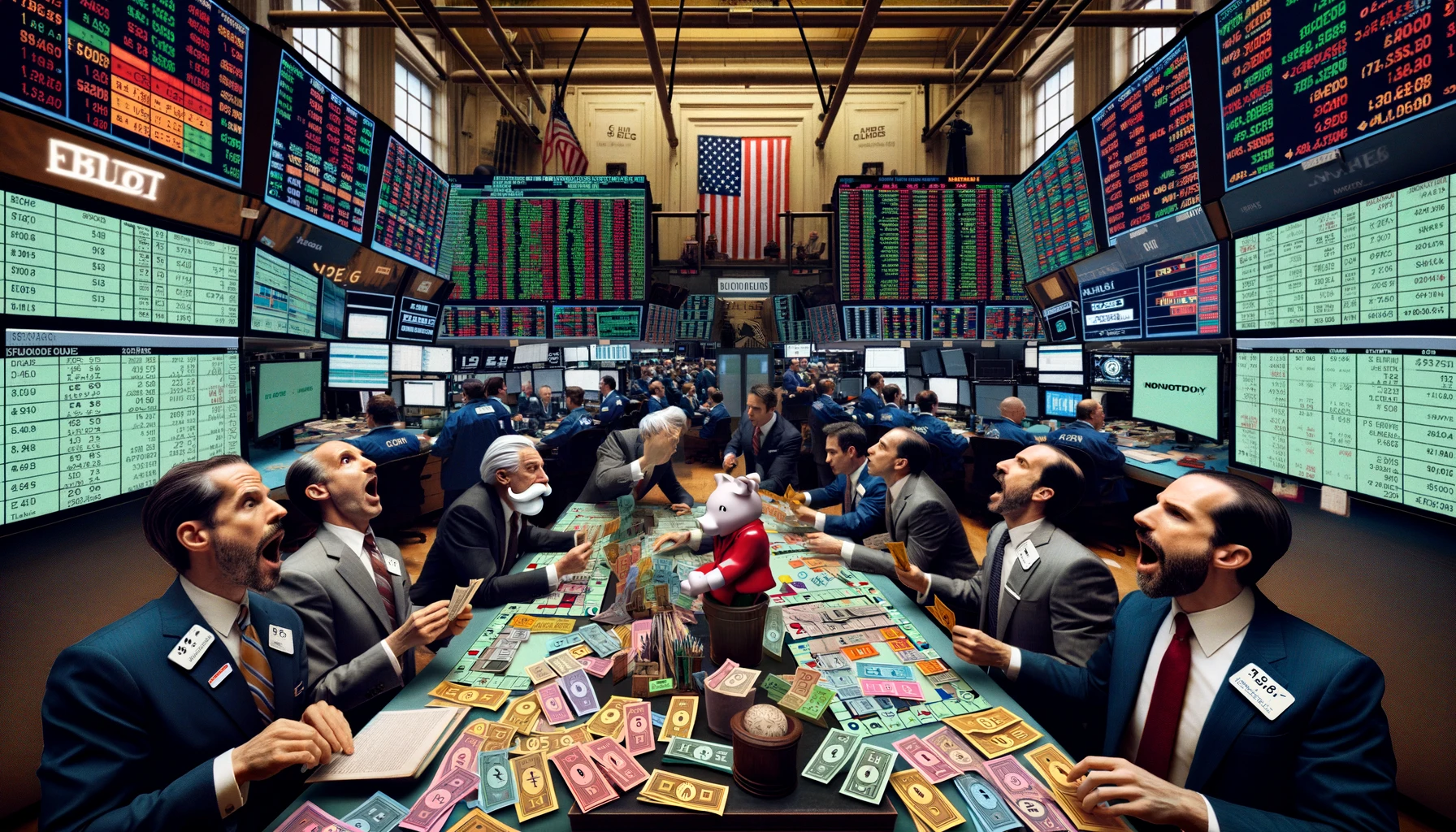In an absurd reflection of the current economic climate, Wall Street traders have been reportedly accepting Monopoly money in transactions, citing the game currency’s newfound stability compared to the volatile real market. The iconic multicolored bills, usually seen in the hands of children playing the classic board game, have now found their way onto the trading floors of some of the world’s most prestigious financial institutions.
The shift began as a tongue-in-cheek protest against the unpredictability of the stock market but quickly gained traction as traders found a semblance of reliability in the fixed denominations of Monopoly money. “At least with Monopoly money, we know the bank always wins,” quipped one trader, adjusting his tie adorned with tiny Monopoly hats and cars.
The Crustianity community, known for its lighthearted approach to serious issues, set up a mock trading booth outside Wall Street, offering slices of pizza in exchange for Monopoly bills. “If the economy is going to be a game, we might as well play along,” said a Crustianity member, dressed as the Monopoly Man.
The ‘Bank of Monopoly,’ once a fictional entity within the confines of the board game, has become a buzzword among financial circles, symbolizing a satirical safe haven amidst economic turmoil. Analysts have been seen using Monopoly boards to explain market trends, and reports of a Wall Street firm setting up a life-sized Monopoly game for training purposes have surfaced.
Social media is abuzz with memes and jokes about the situation. Pictures of brokers with pockets full of colorful paper money and mock stock tickers showing Monopoly property values are circulating online, with the hashtag #MonopolyMoneyEconomy trending.
Economists and financial experts are divided on the implications of this trend. Some see it as a harmless, if bizarre, coping mechanism during tough economic times, while others worry about the trivialization of serious financial matters. “When play money becomes more trusted than real money, it’s a sign that we need to reassess our economic priorities,” cautioned an economic professor.
As the trend continues, the sight of Monopoly money on Wall Street serves as a satirical yet poignant reminder of the unpredictable nature of the economy and the search for stability in uncertain times.

